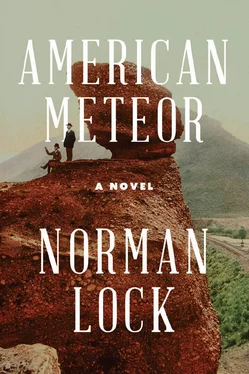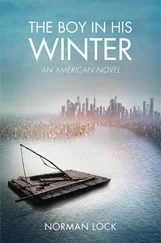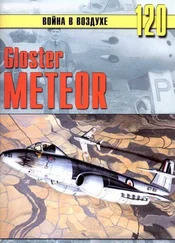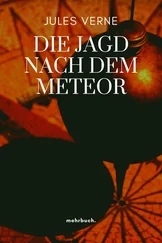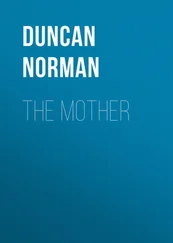“I’m a reporter for the Chicago Daily Tribune ,” he said in a peaceable voice belied by his robust presence. “Mind if I take a look around?”
I didn’t see any reason to bar entrance to a gentleman of the press or to blow Jericho for reinforcements, so I opened the door wide and let him come in. Reading by the light of a single candle set on the table, I hadn’t noticed when the shadows engulfed the narrow car. I lit the wall sconces, and their reflected light bloomed suddenly, gilding each windowpane. Mr. Lincoln’s funeral coach still retained its opulence; the varnished wood of the coffered panels and carved furniture gleamed, the crystal shone, and the tapestried chairs and sofas caught glints of light in their shiny threads.
“People back east think it’s a shame the car that bore Abe Lincoln to his tomb ended up a pleasure coach for rich men,” he said, putting his hat on the table in a disdainful way that would prove his worth to these same men had they been there to see it. “Lincoln was a man of the people, and his parlor car rightfully belongs to the people. I was sent out here to write a piece about the car’s employment by a gang of plutocrats who don’t give a damn for sentiment or democracy.” He held his horses a moment, studying a bottle of Jameson Irish whiskey, like an ornithologist beholding an exotic bird landed on a steaming pile of Barren Island “putrescibles.” Conscientiousness carried the day over liquid temptation — imported, you would have thought, expressly for his ruin. “You’re an Irish lad, by the look of you.”
“I am,” I said.
“What does your mother call you?” he asked, shunting down a spur from the main track of his thought, like a locomotive when the points are changed.
“She called me Stephen. She’s dead.”
I was reclining on a horsehair sofa in order to prove my own equality and democratic pluck. Besides, I was not obliged to wait on newspapermen without an appointment.
“My condolences. A Dublin girl, was she, during her days in God’s second Eden? I’m not one of those traitors who call Ireland His most fantastic mistake. They were whelped by an angry god.”
“Dún Laoghaire.”
“I’m pleased to hear you call it by its given name instead of Kingstown. Goddamn the British Empire!” His gaze shifted again to the bottle in token of his patriotism, but he quickly broke its spellbinding thread with a shake of his heavy jowls, broken-veined by drink, as if to disabuse himself of a mirage. “What are you reading?”
“ Silas Marner .”
“There’s a tale of penny-pinching greed Durant and his fellow robber barons should be forced to eat raw and uncooked!” he bawled.
Here now, I thought, is the true timbre of the big blustering Mick. I admit I found his performance entertaining and, hoping for more, baited him.
“You should see the steaks and oysters they throw down their gullets,” I said. “Chased with the best whiskey.”
I recalled the hard bread, salt, and coffee we had eaten in the field and wished that Durant and his cronies would choke on their luxuries. The wish, no more than a spark, cooled, and the comedy continued.
“I wouldn’t mind a drop.”
“Sure thing, Mr. Landy!” I said, jumping up to fetch General Jack’s bottle of Irish.
“There’s nothing like the sound of good whiskey falling lightly in a glass,” he remarked appreciatively when I poured him out a double jigger’s worth. He smacked his lips, raised his glass, and saluted me with the ceremony of Grant doffing his hat to Lee at Appomattox Court House. “May you be in heaven a full half hour before the devil knows you’re dead.”
He drank it off, and I stood poised to pour him another. But he turned his shot glass upside down.
“Thank you, but I don’t want to forget the reason why I’ve come.”
This is no ordinary Irishman, I said to myself, marveling at his restraint in the presence of Dublin’s most celebrated mash. He composed himself, cleared his throat rhetorically, and then asked to hear me recite my history. Except for how I’d lost my eye to my own carelessness, I told him the truth. I don’t know why I was mostly honest with him, unless his repugnance for crooks and fakes encouraged me to be factual. As I told my tale — it took me some time to gather the threads and, frequently having dropped them in befuddlement, pick them up again — Landy would nod, his spectacles flashing with candlelight a semaphore of compassion or indignation, appropriate to each pitiful incident.
“And did you know Mr. Lincoln?” he asked when I’d finished talking.
“I knew him dead,” I said, “better than anyone else, including his wife, who was prostrate in Washington during the twelve days it took to take him home. I kept him company during the long, silent nights the train traveled between wakes. I’d sit in this car, with only the candles on the two coffins to shoulder the darkness, and I’d think all the grand and terrible thoughts that go through the mind of a person contemplating a corpse. I had two corpses to ponder: one short, the other extra long.”
“It would have scared the bejesus out of most!” Landy said, his whistle wet with remnant booze his shockingly pink tongue had leached from his mustache.
I was pleased with the courage I’d shown, though I hadn’t recognized it until now.
“I met Walt Whitman,” I said. “The poet.”
“A scurrilous man! He violates the conventions of metrical poetry and decency.”
Ignorant of poetry, I felt it prudent to change the subject.
“And General Grant. He gave me this.”
I showed him the medal.
“If I can fit you into my article, I will,” he said. “What’s the last name?
“Moran.”
He wrote down my name in his notebook, or pretended to. “Stephen Moran,” he said grandly, composing with his index finger a headline in the air: THE BUGLE BOY & HIS LONELY VIGIL.
I never saw my name or story in the Chicago Daily Tribune . But Landy was instrumental in my education. The paper kept him in Omaha to report on the railroad’s westward progress. In the evenings when I was in town, I’d sit and read in a corner of his office. He’d help me over the words I didn’t know and through the tangle of thoughts I could not, at first, pick apart into sense.
The crusade to save the Lincoln funeral car failed, naturally. The railroad continued to use it to supervise construction. I lost track of it after I left the Union Pacific in 1870 to traipse across the Wasatch with my camera. I have it on good authority that it ended its days a curiosity in Minneapolis, until a prairie fire reduced it to a burned-out wreck.
Life went on, as it must till the last breath escapes us and mingles, according to the laws of natural science, with the ether. Whether it will transpire, at time’s finale, into the bosom of Abraham, who showed a willingness to slaughter his son, none can say. And Abraham Lincoln? Many say he ought to have been more careful of his sons, who went to the killing fields by their tens and hundreds of thousands. In my opinion, Lincoln was a good man. If a man can be good. What is a good man if not one who does not believe in himself to the exclusion of others? I saw his face, remember. Not even the mortuary art could erase it entirely of gnawing doubt. Beneath the artful rouge and chalk, I saw the marks left by the demons — his countrymen’s and his own — wrestled unto death. (I wish I could have photographed that face!) He was asked to bear what cannot be borne — what should not be borne. I hope never to be so tested, for I have it on the best authority that I will not bear it.
Promontory Summit, Utah Territory, May 10, 1869
Читать дальше
